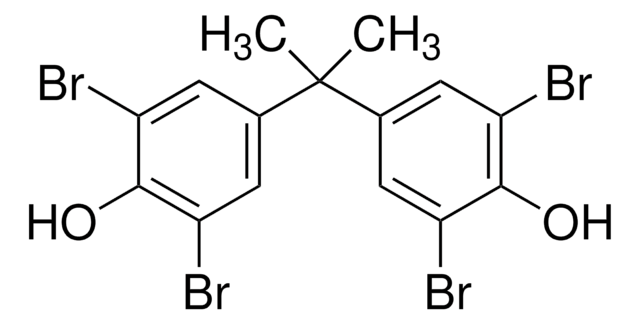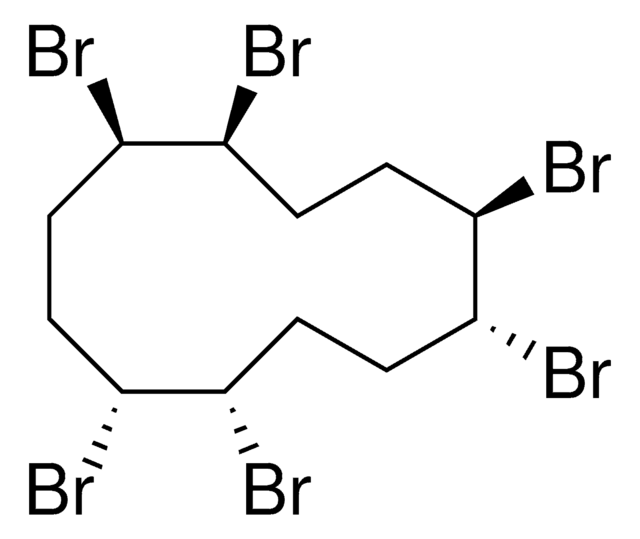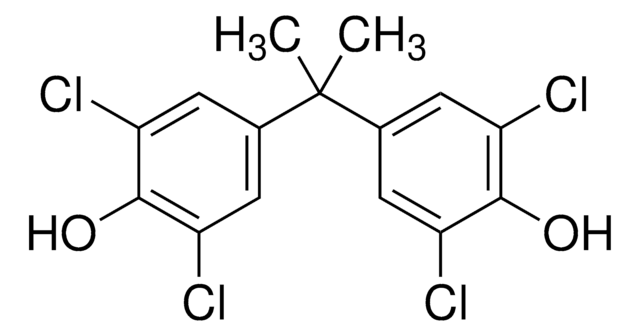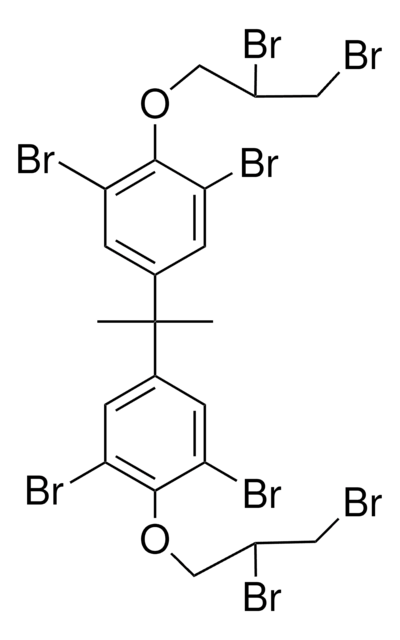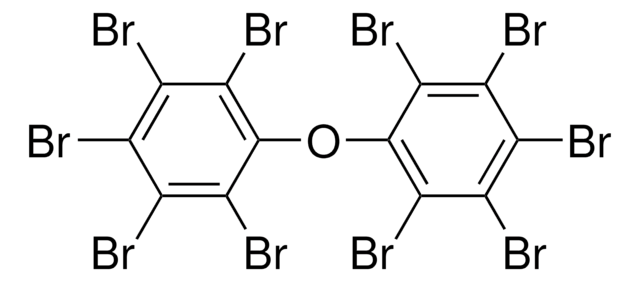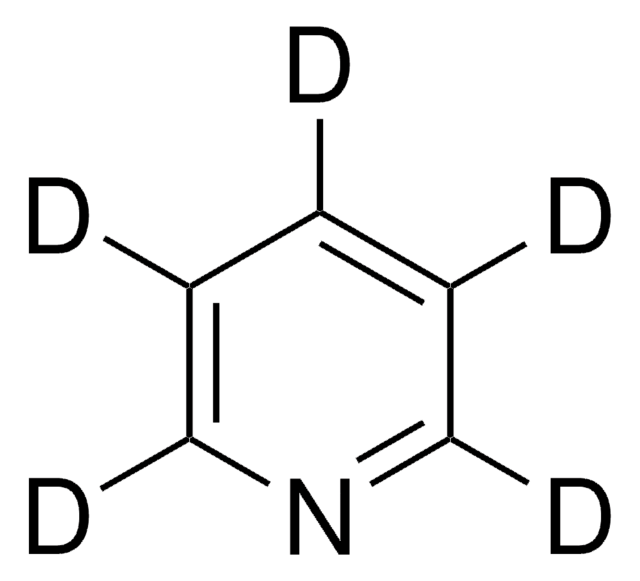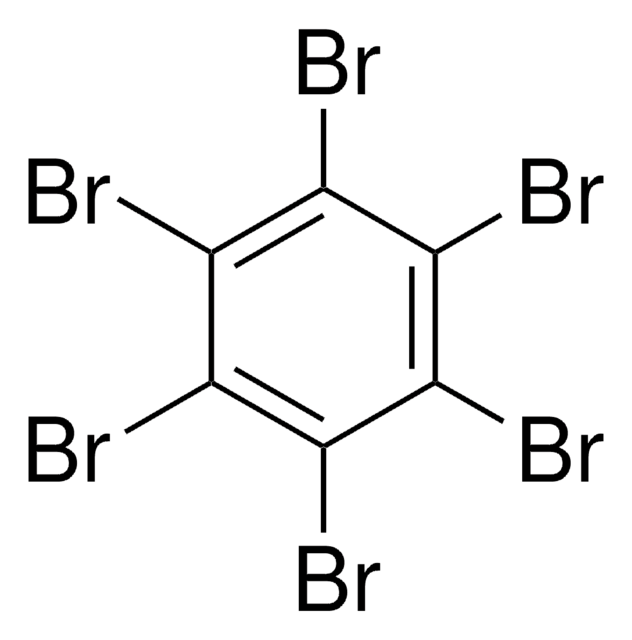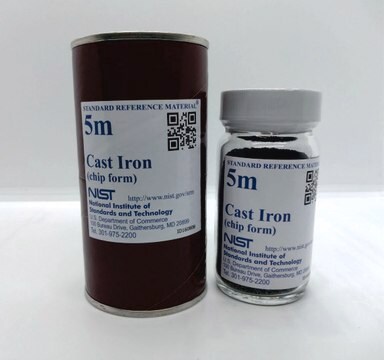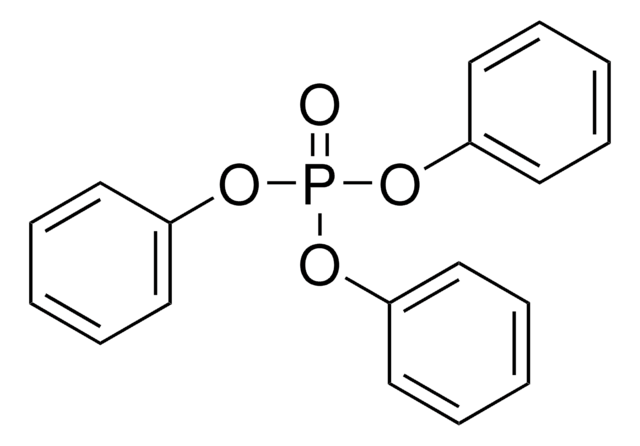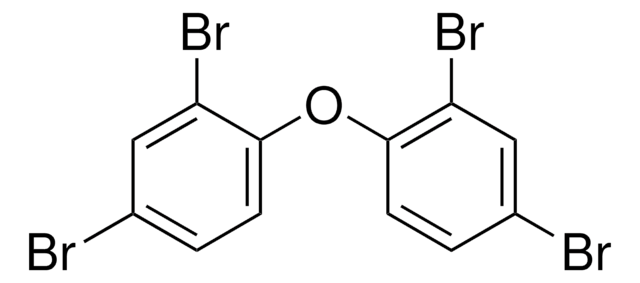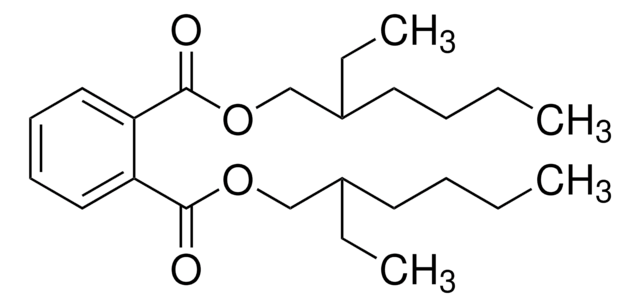330396
3,3′,5,5′-Tetrabromobisphenol A
97%
Synonym(s):
4,4′-Isopropylidenebis(2,6-dibromophenol), TBBPA
About This Item
Recommended Products
Assay
97%
mp
178-181 °C (lit.)
SMILES string
CC(C)(c1cc(Br)c(O)c(Br)c1)c2cc(Br)c(O)c(Br)c2
InChI
1S/C15H12Br4O2/c1-15(2,7-3-9(16)13(20)10(17)4-7)8-5-11(18)14(21)12(19)6-8/h3-6,20-21H,1-2H3
InChI key
VEORPZCZECFIRK-UHFFFAOYSA-N
Gene Information
human ... ALOX12(239) , ALOX15(246)
Looking for similar products? Visit Product Comparison Guide
Related Categories
Signal Word
Warning
Hazard Statements
Precautionary Statements
Hazard Classifications
Aquatic Acute 1 - Aquatic Chronic 1 - Carc. 2
Storage Class Code
11 - Combustible Solids
WGK
WGK 2
Flash Point(F)
Not applicable
Flash Point(C)
Not applicable
Personal Protective Equipment
Choose from one of the most recent versions:
Already Own This Product?
Find documentation for the products that you have recently purchased in the Document Library.
Customers Also Viewed
Our team of scientists has experience in all areas of research including Life Science, Material Science, Chemical Synthesis, Chromatography, Analytical and many others.
Contact Technical Service